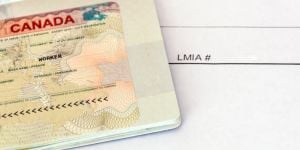
To stay in touch with your friends and family from Canada, choose the communication method that best suits your budget. This article will help you make your choice regarding phone and internet subscriptions in Canada.
Telephone services in Canada
In Canada, telecommunications regulations and services are primarily governed by the federal government. There is no national telephone operator, but major mobile phone operators such as Rogers, Bell, and Telus dominate the national market. Several operators offer services such as landline telephony, international calls, Internet, mobile telephony, and satellite television. There is strong competition among different service providers in the country. Note also that Canada has introduced a Voice over IP (VoIP) phone service.
You need to differentiate between local calls - whose range varies depending on your place of residence - and so-called "long-distance" calls - within Canada and the United States - and international calls. If you travel, even within a province, some of your calls might cost you more. Check your operator's coverage.
Good to know:
As in the United States, Canada's telephone code is +1. Remember to dial double 00 before this code (without the "+").
Residential telephone services
For a basic residential telephone service, you need to pay an amount ranging from 20 CAD to 45 CAD. This entitles you to unlimited calls within Canada and sometimes to the United States. In Quebec, you may also have to choose between 2 types of contracts: an indeterminate duration contract and a fixed-term contract. Some unlimited plans are also offered. You will likely have to pay additional installation fees.
You may be required to pay a security deposit when you apply. The deposit amount will be given based on your telephony expenses. This money will be returned to you with the applicable interest rate within a maximum of 30 days after the contract ends.
Some providers have retail outlets that can speed up the installation of your line. This should occur within three days and can cost between 20 CAD and 120 CAD depending on your place of residence. Note that the telephone company will not provide you with a telephone handset. You will need to buy it from an electronics store or rent it.
The monthly billing for the service you requested will include the services you requested, such as caller ID, call waiting, voicemail, and adding your number to the do-not-call list. Some of these services may be included in the base price. Note that Canadian telephone companies should not require you to sign a long-term contract to subscribe to these offers.
Using your mobile phone in Canada
To work in Canada, a mobile phone from abroad must be at least tri-band, which is the case for most current phones. If you are coming from a continent other than North America, you will need to check your mobile phone's frequency and inquire about the network used by your operator in Canada.
You must also ensure that your mobile phone is unlocked to receive a new SIM card. It is advisable to unlock your mobile phone before arriving in Canada, as it will be difficult to find stores that can do it locally. Once your phone is unlocked, you can purchase a new SIM card which you will need to top up.
Good to know:
No charges can be claimed for the activation of a calling card in Quebec. Only the minutes purchased should be billed to you.
Choosing a mobile plan
Before choosing your mobile phone operator in Canada, find out about the different offers. The plan you choose will depend on your usage habits: if you use the Internet a lot, if you prefer texting over calls, etc.
Take the time to look carefully at what services are offered in the plans and offers that interest you: in Canada, some services like call waiting, call forwarding, incoming calls, caller ID, and voicemail are not always included in the base price. Additionally, your voicemail may be limited to a certain number of messages.
Depending on the operators, you can opt for a plan with or without commitment. If you decide to terminate a phone contract before the expiration date, you may be subject to a penalty equivalent to your monthly plan price multiplied by the number of remaining months.
Generally, mobile phone contracts in Canada last two to three years. However, there are no-contract offers. If you plan to move during your stay, it would be wiser to choose the services of an operator available nationwide, allowing you to avoid canceling your subscription. Some companies only cover one province or even one region.
Useful links:
Making calls in Canada
To stay in touch with your loved ones, you can use prepaid phone cards. These cards will allow you to make significant savings since international calls from a mobile or landline can be relatively expensive. You can buy them in supermarkets and small convenience stores - called dépanneurs in Quebec - in most major Canadian cities.
You can use them on any phone, whether at work, home, on a mobile phone, or even in a phone booth. You can also call from a friend's house or work without the call being billed to the calling address if you use a toll-free access number.
The free mobile app WhatsApp also works very well for calling other countries if you are connected via Wi-Fi or mobile data. For video calls in a professional context, Zoom, Microsoft Teams, and Google Meet are among the most popular options.
Internet in Canada
To get an Internet connection in Canada, first determine your usage. The price of your plan will depend on the number of hours you spend online, your Internet usage, and the number of people living with you. There are unlimited plans available, but they are much more expensive than in Europe.
After making your request with the chosen operator, you may have to wait a few days before the service is activated. The process will be faster if you live in an apartment that already has Internet service and you go through the same provider.
Good to know:
To find out about the Internet services offered in your area, you can use the national broadband Internet services map. For more information on high-speed Internet in the country, visit the Canadian government website.
Internet fees and rates
The number of options and packages available depends on the cities and regions. Inquire with your operator. In 2025, Virgin Mobile, TekSavvy, and Acanac offer affordable plans around 50 CAD per month for speeds of 10 or 15 Mbps. Providers like Oxio, Bravo Telecom, and Acanac offer affordable plans starting from about 40 to 55 CAD per month, with speeds ranging from 10 to 25 Mbps. Additionally, premium plans at Rogers and Bell offer very high speeds, exceeding 100 CAD per month, plus one-time activation fees.
In addition to monthly subscription fees, you will need to pay taxes as well as installation, activation, and modem rental fees. Sometimes, rental fees are included in the base price, but not always. A plan advertised at 35 CAD per month can reach about 45 CAD, all-inclusive, considering taxes and potential additional fees.
You could benefit from a preferential rate if you choose the same provider for your mobile, Internet access, and television. Offers are also available for students and newcomers. Don't hesitate to negotiate and leverage competition. More and more small operators offer services equivalent to those of major companies like Bell or Rogers, but at lower rates, so take the time to compare and check online reviews.
In case of a dispute with your operator, you can file a complaint with the Commission for Complaints for Telecom-television Services (CCTS).
Wi-Fi
If you have a laptop or a mobile phone, you can access Wi-Fi in many establishments such as airports, hotels, cafés, and municipal libraries. You can also visit a cybercafé or coworking spaces in the area where you live.
Surfing the Internet with your mobile data can cost around 40 CAD per month, depending on the subscription chosen. If you travel regularly, even within the same province, your data usage might be considered "roaming" or even blocked. Check your provider's coverage and "travel options" before subscribing to an internet plan.
Good to know: Canada is known for having high mobile data rates, ranking among the countries with the highest prices globally. This means that even if you find a good plan in Canada, it remains relatively expensive compared to other countries like France.
Useful links:
Internet services offered to Canadians - Canadian Radio-television and Telecommunications Commission
We do our best to provide accurate and up to date information. However, if you have noticed any inaccuracies in this article, please let us know in the comments section below.








